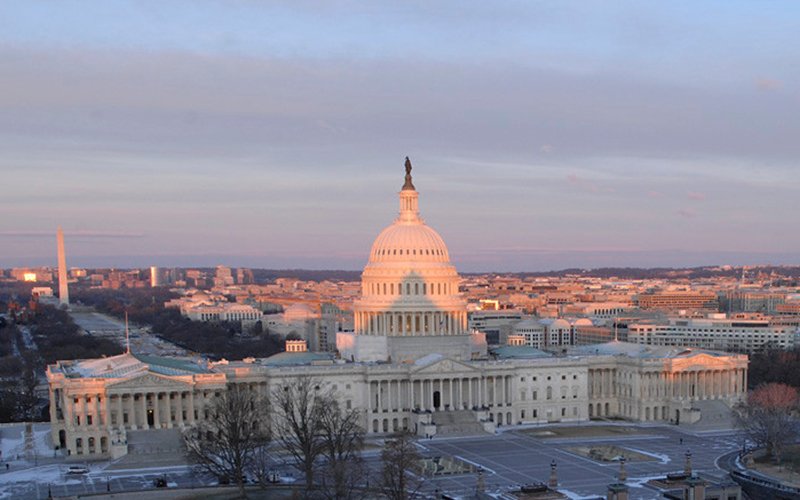Rep. Debbie Lesko, R-Peoria, said it can be hard to be socially distant when a large part of your job requires being social.
From interacting with constituents, to boarding planes between D.C. and Arizona, to voting on the House floor, Lesko said it’s challenging for members of Congress to limit possible exposure to the coronavirus.
“My job is one where I have to meet with people, where I have to go out in public,” Lesko said in a virtual interview. “They’re usually right in my face, so I can’t really control if people are going to wear masks or not.”
So Lesko home-quarantined in November after she was exposed to someone who later tested positive for COVID-19, even though she did not display any symptoms of the virus. And she is not alone.
Four of Arizona’s nine House members have quarantined since the start of the outbreak, either because they were exposed or because they tested positive themselves. Except for states with just one House member, Arizona has the highest percentage of delegation members who have quarantined.
Overall, at least 71 House members have quarantined because they tested positive for COVID-19 or may have been exposed to the virus, according to GovTrack.us. That’s about one House member in six.
In addition to Lesko, Arizona GOP Reps. Paul Gosar of Prescott and David Schweikert of Fountain Hills also quarantined in March because of possible exposure to the virus. Rep. Raúl Grijalva, D-Tucson, quarantined in July after testing positive for COVID-19, although he recovered quickly.
“While I cannot blame anyone directly for this, this week has shown that there are some Members of Congress who fail to take this crisis seriously.” Grijalva said in a written statement at the time. “Numerous Republican members routinely strut around the Capitol without a mask to selfishly make a political statement at the expense of their colleagues, staff, and their families.”
Bradford Fitch, president and CEO of the Congressional Management Foundation, said it’s a problem across Capitol Hill.
Fitch, who is “not happy” with how Congress is handling the health guidelines for the virus, said members don’t adhere to proper distancing and “have not developed a uniform safety standard like any employer their size.”
“There’s 15,000 people working on the Capitol campus – it’s been up to 535 individual managers, or members of Congress, to determine what those standards are, and as a result, we’re seeing outbreaks,” he said.
Rep. Ann Kirkpatrick, D-Tucson, said she took the pandemic seriously, catching “the first flight out” of Washington when the pandemic started to get severe, closing her Hill and district offices and shifting to remote operations.
Kirkpatrick has not been back to Washington since March – something that’s possible since the House allowed proxy voting for the first time in its history in response to COVID-19. Grijalva is the only other member from Arizona who has designated another member to cast their vote.
Republicans have blasted the Democratic leadership for allowing voting by proxy and have refused to go along. Most of the 36 GOP members who have quarantined – including Lesko – have instead entered statements into the record after the fact, indicating how they would have voted if they had been there in person.
“We actually think if nurses and doctors and grocery store workers and everybody else has to go to work I think members of Congress should have to go to work too,” Lesko said.
But Kirkpatrick said she is trying to “lead by example,” urging people to wash their hands, keep some distance from one another and wear a mask – something she said she does even when taking out the trash. But she concedes that she misses interacting with her colleagues in Congress.
“We are communicating on a regular basis, but it’s not the same as being there in person,” she said.




